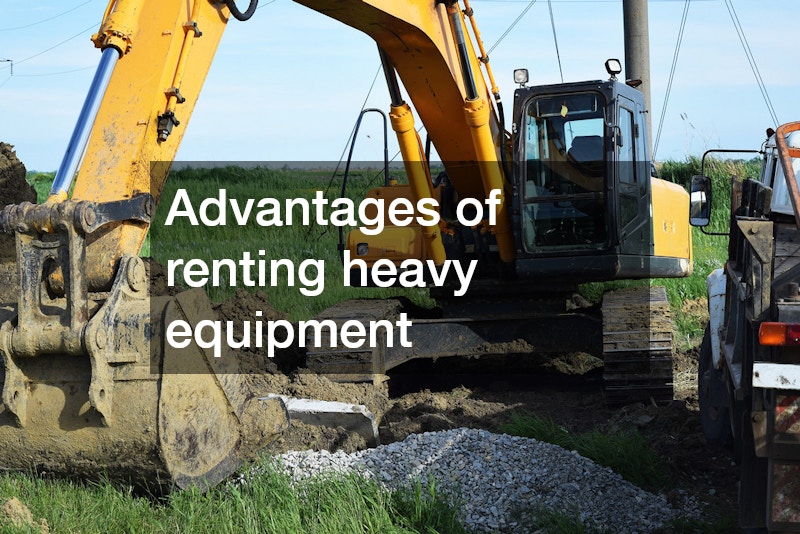
From cranes to excavators, a construction firm must purchase many pieces of heavy equipment during the course of their business life. If you recently started your construction firm, crane and excavator rentals might provide a budget-friendly way of obtaining the equipment you need. Heavy equipment acquisition offers three options – purchase, renting, and rent to own mini excavators, excavators, etc.
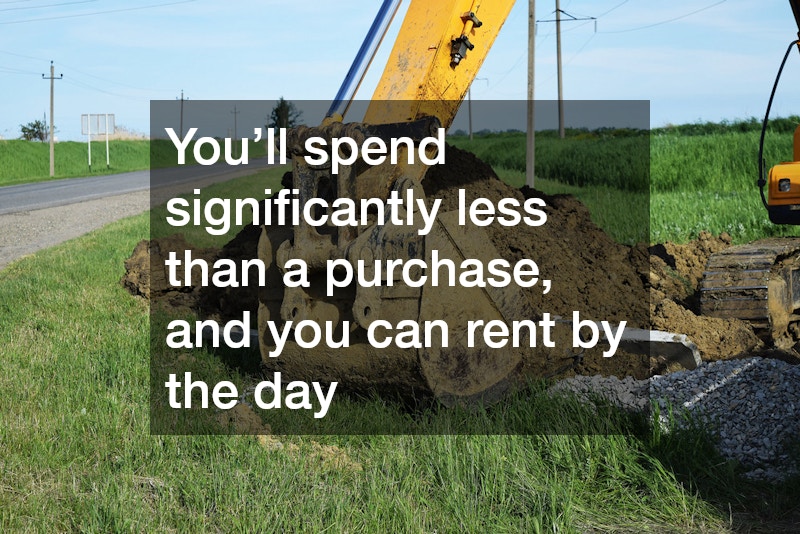
Cost of Renting a Mini Excavator
Purchasing a mini excavator or household excavator costs between $1,400 and $4,000. These designs aren’t meant for use on construction sites. Expect to pay between $7,000 and $14,000 for a professional-grade mini excavator.
How much does it cost to rent a mini excavator, you ask? You’ll spend significantly less than a purchase, and you can rent by the day. Daily electric mini excavator rental costs depend on the ton size of the equipment:
- – 1 to 2-ton excavator – $200 to $350
- – 2 to 4-ton excavator – $350 to $500
- – 4 to 6-ton excavator – $500 to $650.
Besides mini excavators, many heavy equipment companies also rent full-size excavators, cranes, bulldozers, and other earth-moving equipment.
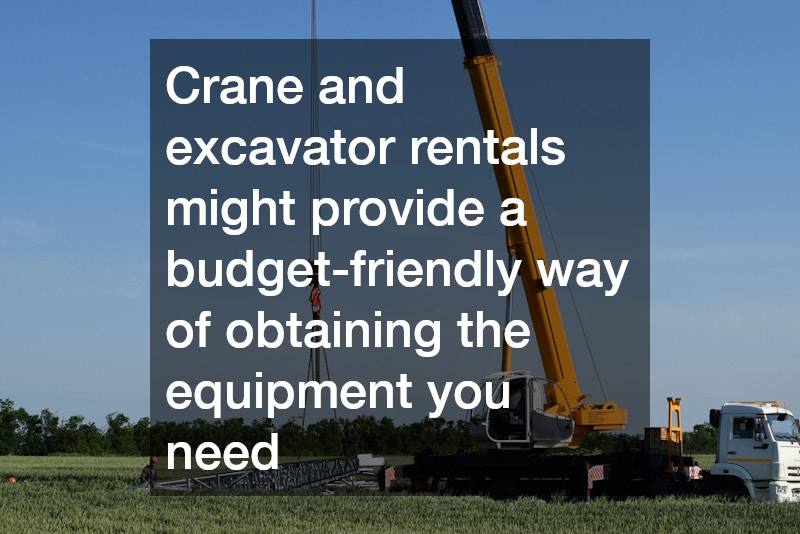
Renting Other Heavy Equipment
Find reliable equipment rentals by visiting the website of your favorite manufacturer, such as Bobcat, Caterpillar, or John Deere. Check the section of the site titled authorized dealers. This helpful database provides the name, address, website, and contact information of a local dealership. Examine their website to determine if they rent, rent to own, and sell equipment.
Every successful construction business needs to make strategic financial decisions to make a profit. One such decision is renting equipment rather than buying it. By opting for an equipment rental, businesses can significantly reduce their overhead costs while gaining access to high-quality machinery without the burden of ownership. This approach is particularly beneficial for companies that require specialized machinery for specific projects, such as excavation equipment or a lull for lifting heavy materials.
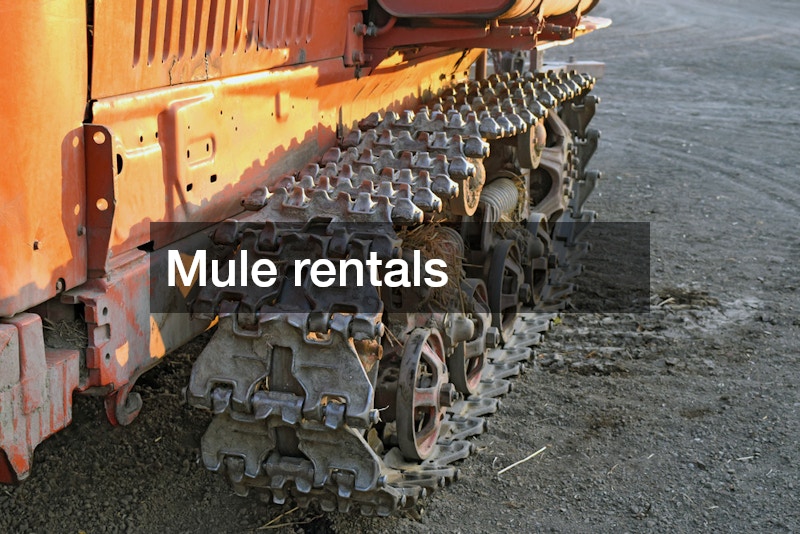
Mule rentals, for instance, provide a versatile solution for transporting materials across job sites, raising efficiency and productivity. The flexibility of rental equipment solutions allows construction firms to scale their operations according to project demands, ensuring they have the right tools at the right time without the long-term commitment of purchasing. Renting a lull, a type of telehandler, can be a game-changer for projects that involve heavy lifting and precise placement of materials.
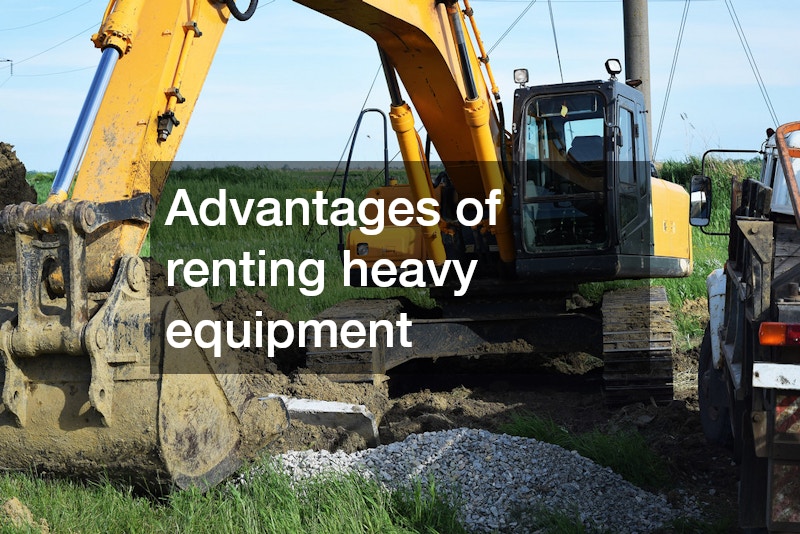
This article will explore the advantages of renting heavy equipment, including cost savings, access to the latest technology, and the ability to focus on core business operations. Whether you are a small contractor or a large construction firm, understanding how renting equipment can benefit you will lead to smarter financial decisions and improved project outcomes.

Updated: 3/18/2021
When buying heavy equipment or renting 2nd hand machinery, there are factors that need to be considered. Deciding which options to settle for will become easier when thoroughly evaluated to determine their capabilities and your future business plans. Here are three factors you need to consider thoughtfully,
Consider your current financial condition. There is no doubt that purchasing heavy equipment or looking for bobcat rental is a large financial outlay. However, it would be best to look beyond the present condition you are facing and think about your probable requirement and costs for a long-term purpose. The long-term cost can be very expensive if you are going to use the equipment for short-term needs.
Think about usage and availability. The biggest benefit you will enjoy when you have your big machine transport or equipment is the availability round the clock whenever you need it for use. Therefore, it can be easy to respond to changes that will come unexpectedly in the project schedules.
Consider the cost of renting versus the cost of ownership. Before making your final decision, compare the cost of renting equipment with the cost of ownership. You can check the construction vehicles auction sites if you want to acquire one and visit companies that rent and compare them. If you want to rent, be ready to pay the transportation cost every time you hire equipment.
In two days it will be the site of both the College World Series of Baseball and the Olympic Swim Trials. Today, however, the city of Omaha is making quick use of different kinds of equipment to fill in pot holes throughout the city. Much of the work was completed before the baseball games began, but with the biggest crowds expected the last Monday and Tuesday in June, some work still remains.
Sometimes even cities with fleets of their own equipment still make use of equipment rental for construction projects that have a short completion window. Pot holes and other road problems, for example, often develop at several locations at once. Unexpected high temperatures in the city of Omaha on the Friday before Father’s Day caused one major road to buckle in at least seven spots. Anxious to complete a large amount of repair work at once, cities might rent various construction equipment to complete the jobs with several different crews.
When a city like Omaha prepares for big events like the College World Series and the Swim Trials, they may also rent aerial scissor lifts and other heavy equipment to hang street wide banners and commemorative banners from street light posts, stadium entrances, and other large structures. The need to rent equipment rather than purchase often arises from once a year events. For example, a large city may use boom lift rentals to hang holiday lights and then again to take them down. Renting the equipment makes more sense than buying equipment that would sit idle much of the time and require expensive storage between uses.
Equipment rental for construction projects is also common for once a year concert sites that need to assemble large stages, lighting, and sound systems. This same equipment can also be used at the end of an event to take down the stage and accessories, as well as to remove large amounts of left over trash.
America Is a Major Force In the World-Wide Construction Industry

With its market share of 10%, the U.S. is the second largest construction market in the world. More than 7 million women and men work in the industry that is responsible for building and repairing roads, buildings, and bridges. And while many cities and federal agencies own many pieces of construction equipment, an equal number use equipment rental for construction projects that are both short term and long term. By renting heavy equipment, state and local agencies as well as private businesses do not need to pay for maintenance and storage. Rented equipment can be used when needed and returned for safe keeping when it is no longer needed. Heavy machinery, much of it rented is combined with the 7 million person labor force to create the $296.4 billion in U.S., private and commercial buildings across the country.

